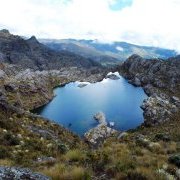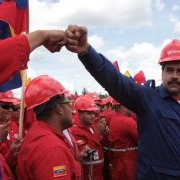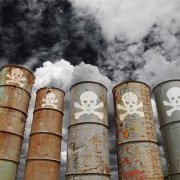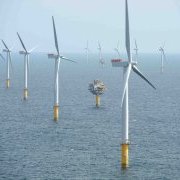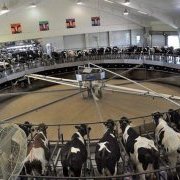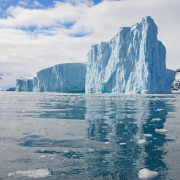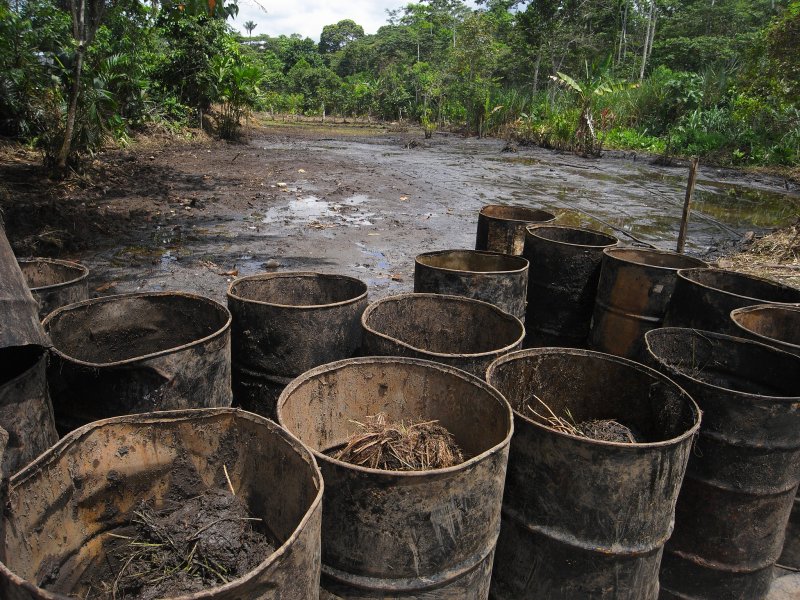
Bilateral trade and investment agreements are connected to some of the world’s most serious environmental crimes and hamper action that is necessary to address climate change.
They are used to facilitate and protect large-scale mining projects, fossil fuel exploration and extraction, dam construction and infrastructure developments that often wreak havoc on the environment. From Alaska to Australia, local communities are facing issues of deforestation, water pollution, fisheries collapse and climate disruption that can be traced to investment projects or development programmes that were financed, framed or supported through a free trade agreement (FTA) or a bilateral investment treaty (BIT) negotiated between two or more governments.
FTAs commonly include chapters that guarantee investors access to fossil fuels such as oil and gas, and to raw materials such as minerals and wood. For example, the EU is currently negotiating an upgrade of its trade deal with Chile, and access to Chile’s lithium reserves is key to Europeans. The EU’s proposed chapter on energy and raw materials states that “a party shall not impose a higher price for exports of energy goods or raw materials to the other party than the price charged for such goods when destined for the domestic market.” For over twenty five years, the energy chapter in the original North American Free Trade Agreement , which applied to trade in energy goods between Canada, Mexico and the US, facilitated trade in environmentally dangerous fossil fuels by obligating Canada to maintain a fixed share of energy goods exports, including oil and gas, to the United States. These kinds of rules expand markets for dirty energy and promote extractivist projects that directly cause climate change.
FTAs spur intensive farming that is one of the main drivers of the climate crisis. For instance, Mercosur’s trade deals with the European Union, and with the European Free Trade Area, would trigger more beef, maize and soy exports from Latin America to Europe, which would generate a significant increase in greenhouse gas emissions. These agreements threaten to further boost agribusiness expansion in Brazil, with severe repercussions in the Amazon and Cerrado regions. Deforestation is common to make space for the production of agricultural commodities and the consequences for the climate crisis are disastrous. Other countries have been facing similar issues, especially in Asia and Africa.
Broad investor protections included in FTAs and BITs also present a grave threat to environmental and climate justice. Investment rules in FTAs and BITs grant expansive rights to multinational corporations at the expense of the public welfare and the environment. They commonly establish an investor-state dispute settlement (ISDS) mechanism that foreign investors can turn to if they believe a policy change, such as a new restriction on fossil fuel extraction or new regulations of a mine, violated one of their broad investor rights. With ISDS, a foreign investor can bypass domestic courts, bring its case to an arbitration tribunal of three private lawyers who are not bound by legal precedent or an appeal system, and demand taxpayer compensation for the profits it hypothetically would have earned without the policy change. These policy changes are often directly aimed at environmental protection or climate policies.
While the investor-state dispute system has existed for decades, corporations’ use of ISDS has surged. To date, multinationals, including energy giants such as Exxon Mobil, Shell, Chevron, and BP, have launched about 1200 cases against over 100 governments using this provision of FTAs, BITs or the Energy Charter Treaty. Foreign investors have launched more ISDS cases in each of the last ten years than in the first three decades of the ISDS system combined. And increasingly, corporations are using the ISDS system found in these trade and investment agreements to challenge climate and environmental policies. Indeed, about a third of overall ISDS cases stem from investments in power generation, mining, energy supply, or oil or gas extraction. The targets of past ISDS cases have included a fracking moratorium in Quebec, a nuclear energy phase-out and new coal-fired power plant standards in Germany, a coal power phase-out in the Netherlands, a court order to pay for Amazon pollution in Ecuador, a requirement to remediate toxic metal smelter emissions in Peru, and a court order to close a hazardous mine in Thailand.
In 2022, for the first time, the Intergovernmental Panel on Climate Change warned that trade and investment agreements that included the ISDS mechanism jeopardised climate action. Another 2022 study estimated that governments could face US$340 billion in legal claims for canceling fossil fuel projects that are subject to treaties with ISDS clauses.
In addition, a long-standing tenet of the free trade paradigm is that governments cannot privilege local goods or service providers over foreign ones. There have been a string of cases at the World Trade Organization (WTO) challenging “buy-local” rules in renewable energy programmes. As a few examples, Japan and the EU have used WTO challenges to strike Ontario, Canada’s “buy-local” rule out of its landmark clean energy programme and the US has challenged similar rules in India’s national solar program. These rules are also found in bilateral trade and investment deals, undermining local initiatives to build sustainable economies.
The neoliberal, corporate-driven model promoted by FTAs threatens our ability to strengthen local economies, promote energy sobriety and achieve food sovereignty. In order to address the climate and other environmental crises, no less than system change is necessary. This means producing and using products and services, from food to transportation to energy, sourced from and embedded in local economies. But none of this will occur unless we roll back the powers and privileges granted to corporations through trade and investment deals.
last update: July 2022
Photo: Texaco’s signature - Lago Agrio by jgomba (CC BY 2.0)




